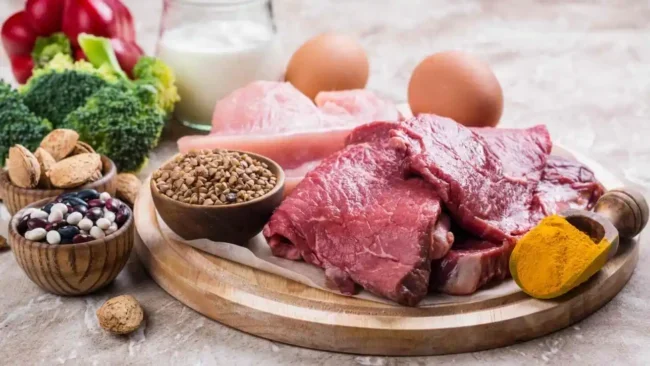If you’re aiming to build muscle, it’s essential to focus on a diet that supports muscle growth and recovery. While some foods may not directly hinder muscle growth, they may not provide the nutrients necessary for optimal muscle development. Here are some foods you might want to limit or avoid:
1. Highly Processed Foods:
Foods like sugary snacks, fast food, and processed snacks often lack the nutrients needed for muscle growth and can lead to excess fat gain, which may hinder muscle-building efforts.
2. Sugary Beverages:
Drinks like soda and sweetened fruit juices can contribute to excess calorie intake without providing essential nutrients.
3. Trans Fats:
These fats are commonly found in fried foods, baked goods, and some margarine. They can promote inflammation and negatively impact heart health, potentially interfering with muscle growth and recovery.
4. Alcohol:
While moderate alcohol consumption may not directly inhibit muscle growth, excessive drinking can interfere with protein synthesis and hormone levels, hindering muscle recovery and growth.
5. High-Sodium Foods:
Excessive sodium intake can lead to water retention and bloating, which may mask muscle definition. Additionally, high-sodium diets can increase blood pressure and negatively affect overall health.
6. Low-Protein Foods:
Protein is crucial for muscle repair and growth. Foods low in protein may not provide sufficient amino acids to support muscle development effectively.
7. Empty-Calorie Snacks:
Snacks like chips, candy, and pastries often provide little nutritional value and can lead to excess calorie intake without providing the necessary nutrients for muscle growth.
8. Excessive Caffeine:
While moderate caffeine consumption can enhance performance during workouts, excessive intake can lead to dehydration and interfere with sleep, which is essential for muscle recovery.
It’s important to note that while these foods may not be ideal for muscle building, occasional consumption in moderation is unlikely to significantly impede progress. A balanced diet rich in lean proteins, healthy fats, complex carbohydrates, fruits, and vegetables is key to supporting muscle growth and overall health.







